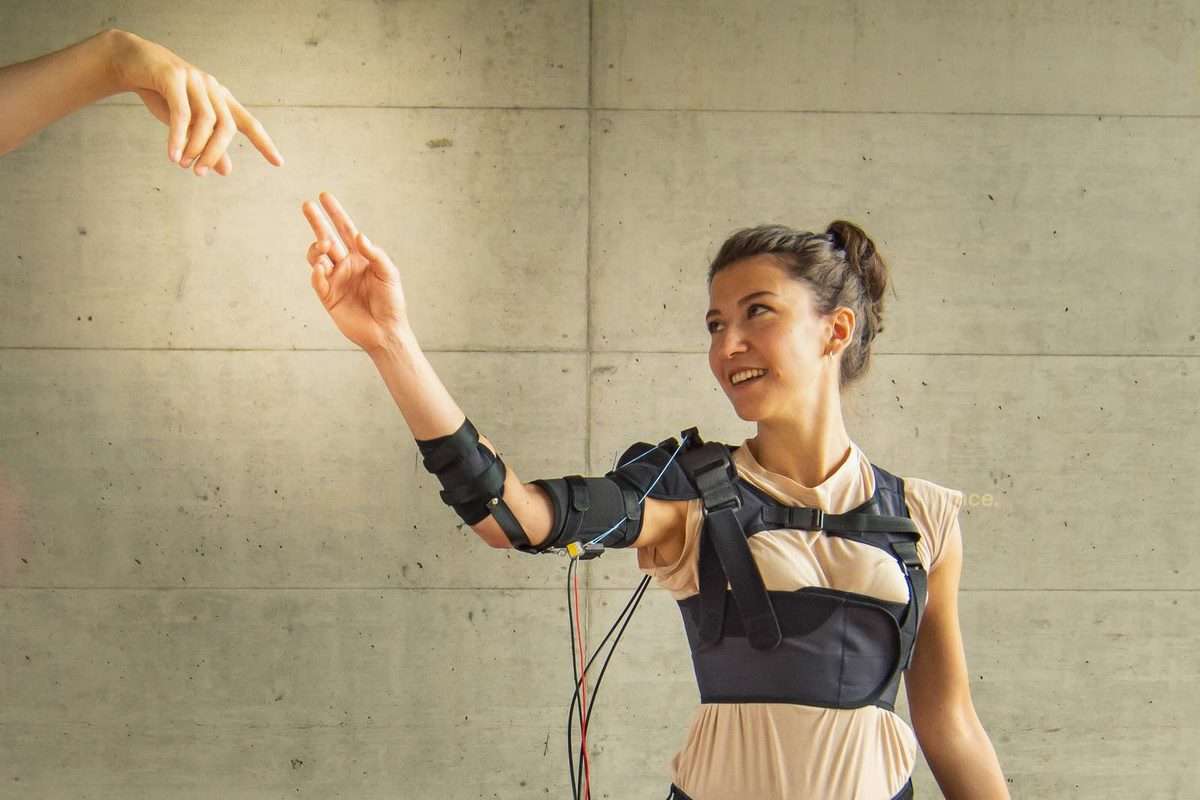World's Largest Prehistoric Flower Preserved in Amber is Stunning Reminder of Nature's Beauty -LOOK
This 1.1 inch flower incased in amber was found 150 years ago, but a re-examination found pollen samples which proved its modern lineage.

A pioneering set of "wearable muscles" with a profile similar to a shoulder sling could increase mobility and strength in the arms of people who have lost it.
As algorithmic intelligence advances, more and more engineers are attempting to design different prosthetics to replace lost mobility, but many are large, bulky, complicated, or extremely expensive.
Michael Hagmann has a rare form of muscular dystrophy called Bethlem myopathy, but his muscular output was increased 61% thanks to a kind of exo-tendon called "Myoshirt" which learns the movements Hagmann wants to make before raising and lowering a cable similar to a human tendon in order to apply mechanical advantage to his actions.
"Although hospitals have numerous good therapy devices, they are often very expensive and unwieldy," said Marie Georgarakis, a former doctoral student at the Swiss Federal Institute for Technology's Sensory Motor Systems Lab in Zurich.
"And there are few technical aids that patients can use directly in their everyday lives and draw on for assistance in performing exercises at home. We want to close this gap."
The Myoshirt is a soft, wearable exomuscle for the arms and shoulders; a kind of vest with cuffs for the upper arms accompanied by a small box containing all the technology that is not used directly on the body.
Smart algorithms detect the user's movements and the assistance remains always in tune with them. The mechanical movements can be tailored to their individual preferences, and the user is always in control and can override the device at any time.
In an alpha-stage test, 12 people including Hagmann and another with a spinal cord injury, performed arm strength tests wearing the Myoshirt. In the 10 who had no mobility issues, Georgarakis et al. found that "onset of muscle fatigue" was delayed by 51 seconds compared to an unsupported arm.
Hagmann experienced a 254 second-delay in the onset of fatigue doing unloaded arm lifts, and the participant with the injured spinal column was able to lift his arms repeatedly for nearly 7-and-a-half minutes more than without the Myoshirt.
At the moment the box containing the motor and computer parts weighs close to 9 pounds, so the team's first priority is to develop a full prototype with an even more discreet profile to allow people to use it in day to day life as often as possible.
WATCH how effortlessly it works…
SHARE This Radical Mobility Device With Your Friends On Social Media…
Be the first to comment